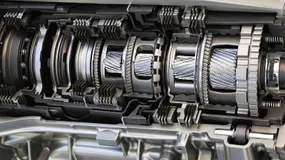Will the Starter Drain the Battery?

The starter is a crucial component in your vehicle’s starting system. It’s responsible for initiating the engine’s operation by turning the flywheel, which then starts the engine’s combustion process. However, many car owners wonder whether the starter could drain the battery. Let’s explore this common question and break down how the starter works and its impact on the car’s battery.
How the Starter Works
The starter motor uses electrical energy from the car’s battery to initiate engine rotation. When you turn the ignition key or push the start button, the starter motor engages, drawing power from the battery to turn the flywheel and start the engine.
Once the engine starts running, the alternator takes over and begins recharging the battery, keeping it at full charge.
Does the Starter Drain the Battery?
While the starter does rely on the battery to work, it does not drain the battery over time in normal conditions. However, if certain issues arise, the starter motor may contribute to battery drain. Here’s how:
1. Starting the Engine
When you attempt to start the engine, the starter motor uses a significant amount of power for a short period. However, once the engine starts, the starter disengages, and the battery starts to recharge through the alternator. Under normal circumstances, this does not drain the battery, as the alternator should supply enough charge to replenish the battery quickly.
2. Faulty Starter or Wiring Issues
A faulty starter can lead to problems. If the starter motor remains engaged after the engine starts, it could continue to draw power from the battery, leading to unnecessary battery drain. Similarly, faulty wiring can prevent the starter from properly disengaging, causing the battery to lose charge over time.
3. Old or Weak Battery
If the battery is old or weak, it may struggle to provide the necessary power to the starter motor, which could lead to battery drain. In such cases, even though the starter is functioning normally, it could be harder to start the engine, and the battery may become drained more quickly.
4. Multiple Attempts to Start the Car
If you attempt to start the car multiple times in a short period (for instance, if the engine isn’t starting and you keep turning the key), this can cause the starter to drain the battery. Each time you turn the key, the starter motor uses energy, which depletes the battery.
How to Prevent Battery Drain from the Starter
While the starter itself doesn’t typically drain the battery, there are several steps you can take to prevent any unnecessary battery drain associated with the starter system.
1. Regular Battery Maintenance
Ensure your battery is in good condition by checking its voltage and cleaning the terminals regularly. If your battery is old, consider replacing it to avoid potential starting issues and excessive strain on the electrical system.
2. Fix Starter Issues Quickly
If your starter is making strange noises or failing to engage and disengage correctly, have it inspected and replaced if necessary. A malfunctioning starter motor can cause prolonged battery drain.
3. Don’t Overuse the Starter
Avoid repeated attempts to start the vehicle without giving the starter time to rest. If your engine is struggling to start, check for other issues, such as fuel problems or a faulty ignition system, and address them before continuing to start the car.
4. Keep the Alternator in Good Condition
The alternator is responsible for keeping the battery charged while the engine runs. If the alternator is faulty, it won’t be able to replenish the battery’s charge after starting, leading to potential battery drain. Regularly check the alternator’s health to prevent this issue.
Frequently Asked Questions (FAQs)
1. Can a bad starter drain the battery?
Yes, a faulty starter can drain the battery. If the starter motor doesn’t disengage after the engine starts, it can continue to draw power from the battery, causing it to drain.
2. Will the starter drain the battery if I try starting the car multiple times?
Yes, repeatedly trying to start your car without success can drain the battery. Each attempt requires power from the battery to engage the starter, so multiple attempts in a short period can quickly deplete the battery.
3. How do I know if my starter is draining the battery?
If you notice that your battery is frequently drained and you hear a clicking sound or the starter doesn’t engage properly, your starter may be the cause. A mechanic can inspect it and determine if it’s functioning correctly.
4. Does a new starter drain the battery more than an old one?
A new starter, in good condition, should not drain the battery more than an old one. If a new starter is causing battery drain, there may be an installation issue or a fault with the part itself.
5. How can I prevent my battery from draining when using the starter?
To prevent battery drain, ensure that both your starter motor and battery are in good condition. Also, avoid overusing the starter and ensure that the alternator is functioning properly to recharge the battery while the engine runs.
Conclusion
The starter motor itself doesn’t typically drain the battery under normal operating conditions. However, if there’s an issue with the starter, wiring, or the battery, it can lead to unnecessary drain. Regular maintenance of your battery and starter system, along with addressing any issues promptly, will ensure that your car starts reliably without draining the battery. If you suspect your starter may be draining your battery, it’s best to have it inspected and repaired to avoid future problems.





